by James | Feb 8, 2018 | Uncategorised
Today we remember the 100th anniversary of the death of John Tom Haines, commemorated on the Bourne Memorial and also on the Thiepval Memorial to the missing of the Somme.
John Thomas Haines was born in Spalding in 1883.
The son of John William Haines and possibly the step son of Suzannah Jane Blood.
By 1901 he was living in Bourne and in 1911 can be found in Dyke.
John enlisted in on the 8th February 1917 in Bourne and served in the 7th Battalion (Alexandra Prince of Wales Own) Yorkshire Regiment, and also the 13th Battalion, although “Soldiers died in the Great War” lists him as Yorkshire Hussars.
He was killed on 8th February 1917, aged 34. Commemorated on the Thiepval Memorial.
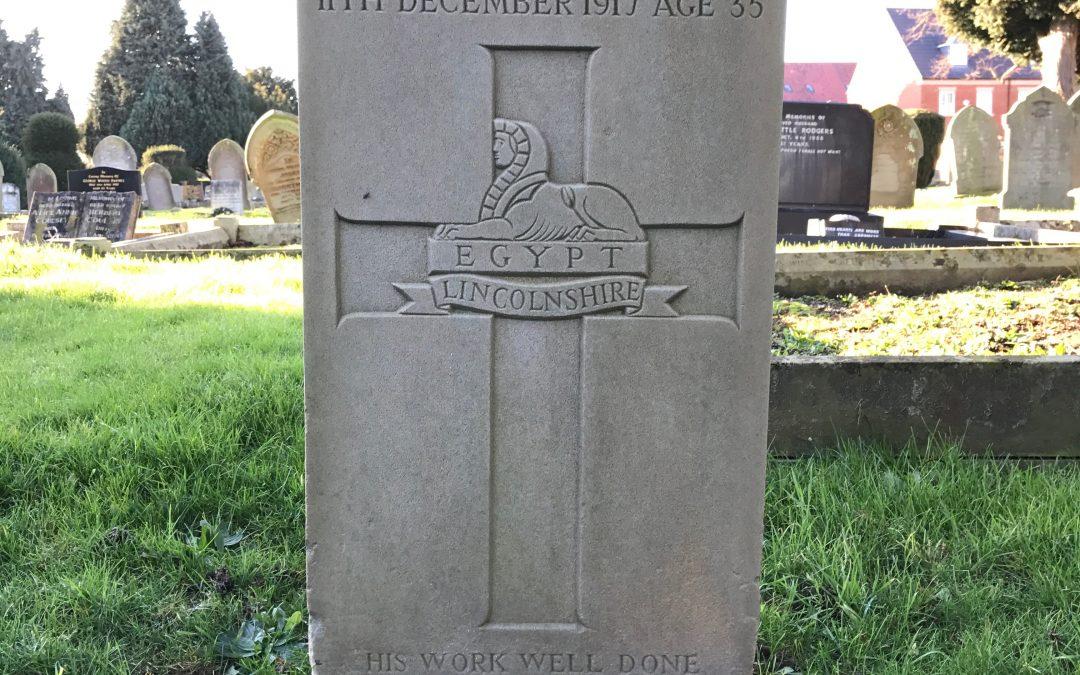
by James | Dec 11, 2017 | Remembrance
Today we pay our respects to Lance Corporal George Lunn who died 100 years ago today, 11th December 1917 and served with the Lincolnshire Regiment.
George was born in Dyke in 1882, the son of John Lunn and his wife Elizabeth Allen. John Lunn was working as a traction engine driver in Dyke in 1911 and at this time George was working as a mineral water packer at Mills and Co Mineral Water Works (Mills and Baxter) in Bourne.
George enlisted into the Lincolnshire Regiment in Bourne around the spring of 1915 and after training was posted to the 1/5th Battalion Lincolnshire Regiment.
In April 1917 George was invalided home with septic poisoning and he then spent 5 months in hospital in Manchester.
Whilst still in hospital the London Gazette of the 14th September 1917 carried the following report:-
His Majesty the KING- has been graciously pleased to award the Military Medal for bravery in the Field to the undermentioned Ladies, Non-Commissioned Officers and Men :-
241750 L./C. G. R. Lunn, Linc. R. (Callick).
After being released from hospital George visited Bourne briefly before being called to Lincoln and then posted to the 4th battalion Lincolnshire Regiment at their East Coast Camp as a musketry instructor. He arrived at the camp and later that night was involved in an accidental shooting, being shot in the chest and later died en route to hospital.
George was buried with a military funeral at Bourne Cemetery and is also commemorated on the Bourne Memorial
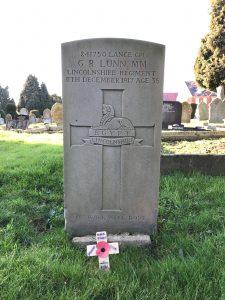
Lincolnshire Echo 14th December 1917
Fatal Rifle Accident – Lance Corporal George Robert Lunn of the Lincolnshire whose home is at 108 Birkin Avenue, Hyson Green, Nottingham has been fatally shot at a camp on the Lincolnshire Coast. Whilst Lunn was standing in the hut talking with the another soldier, Private Bartram Sissons picked up a rifle from the rack and was examining it, when the weapon went off. The bullet struck Lunn who died on the way to hospital. Lunn and Sissons have served together for more than a year in France, and were on good terms.
Grantham Journal 15th December 1917
BOURNE
Memorial Service – On Sunday evening, the Reverend J. Carvath conducted a memorial service for the late Lance Corporal George Lunn at Bourne Congregational Church at which the deceased was a regular worshiper before he left Bourne to join the army. The Rev. Gentleman took for his text of words “I am the resurrection and the light” and pointed out that when Christ spoke these words. He did so to comfort Martha and Mary and they had been a comfort to the bereaved ever since, as he trusted they would be to those who mourned for their departed friend that night.
Military Funeral – On Saturday afternoon a military funeral at Bourne Cemetery attracted a large assembly. The burial was that of Lance Corporal George Lunn, who met his death under sudden circumstances on the previous Tuesday. Deceased had only just returned to camp, after having spent 5 months in hospital in Manchester. Corporal Lunn was with a number of others of the Regiment in the Non Comm hut when a discussion arose on musketry. A rifle was used to demonstrate an argument and on the trigger being pulled, to the dismay of all present, the rifle was found to have contained a live cartridge. Deceased was shot and succumbed to his injuries before arriving at hospital. At the inquest a verdict of accidental death was returned. The funeral was attended by Lieut C. F. E. Dean (representing the T.F. Reserve Battalion Lincolnshire Regiment). Sergeant-Major Garfoot, Sergeant Dolman (who had the funeral arrangements in hand, including the firing party), and Sergeant Drummer Leaning, conducting the bugle band. The cortege was met at Bourne station by the members of the family, including Mr John Lunn (Father), Miss Sergeant (Fiancee), Mr Tom Lunn (Brother), Miss Maude Lunn, Miss Hilda Lunn, Miss Muriel Lunn (Sisters), Mr and Mrs D. Drakard (Uncle and Aunt), Miss Allen (Aunt), Mrs T. Lunn (Sister in Law), Mrs J. Lunn (Step Mother). The service was conducted by the Rev J. Comyn Jones and the Rev J. Carvath. The firing party fired the three volleys. The bearers were six Lance-Corporals, five of whom were personal friends of the deceased. The last post was sounded by the bugle band. There were a number of floral tributes including those from his father; His Sister’s, Maud, Hilda and Muriel; Tom and Gertie; Mrs S. Pick; Mr and Mrs Fell and family; The officers of the Reserve Battalion Lincolnshire Regiment; The Warrant Officers and Sergeants Mess of the Lincolns. Deceased was well known at Bourne, having lived for many years in the town and was employed up to the time of his enlistment in Messrs R. N. Mills and Co’s Mineral water factory and was a packer, the employees of whom were represented at the funeral by Messrs H. Robinson, T. Teat, H. and A. Gilbert. Amongst others present were Messrs George Brown and W. H. Carter (Representing the Bourne Brotherhood) of which body deceased was a member and regular attendant). The Liberal Club (of which deceased was a member since its inception) was represented by Messrs W. Kelby, T. Mee and W. Nichols.
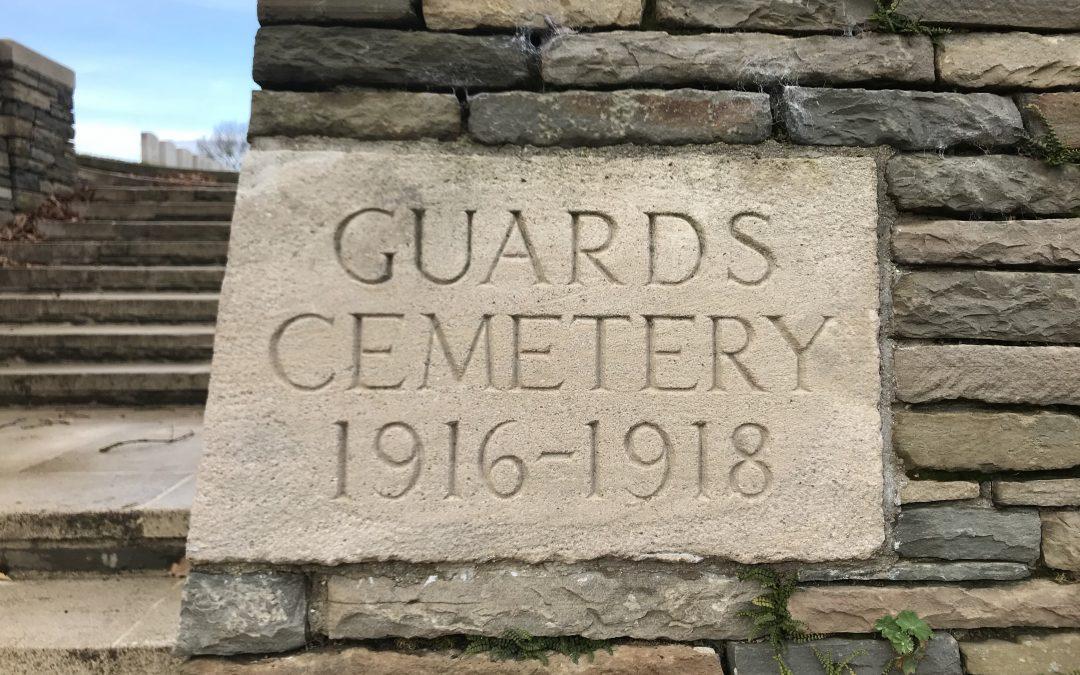
by James | Nov 26, 2017 | Memorial Visit
In November we managed a few cemetery visits. This weekend a visit to the Somme allowed us to visit a few of our men that we had not previously managed to visit and pay our respects.
At Guards Cemetery we visited Bourne man Ernest Stubley of The Kings Own Royal Lancaster Regiment.
Ernest was the son of Francis and Elizabeth Stubley of Wood House, North Fen, Bourne and was killed in action on the 19th of October 1916 aged 26.
RIP
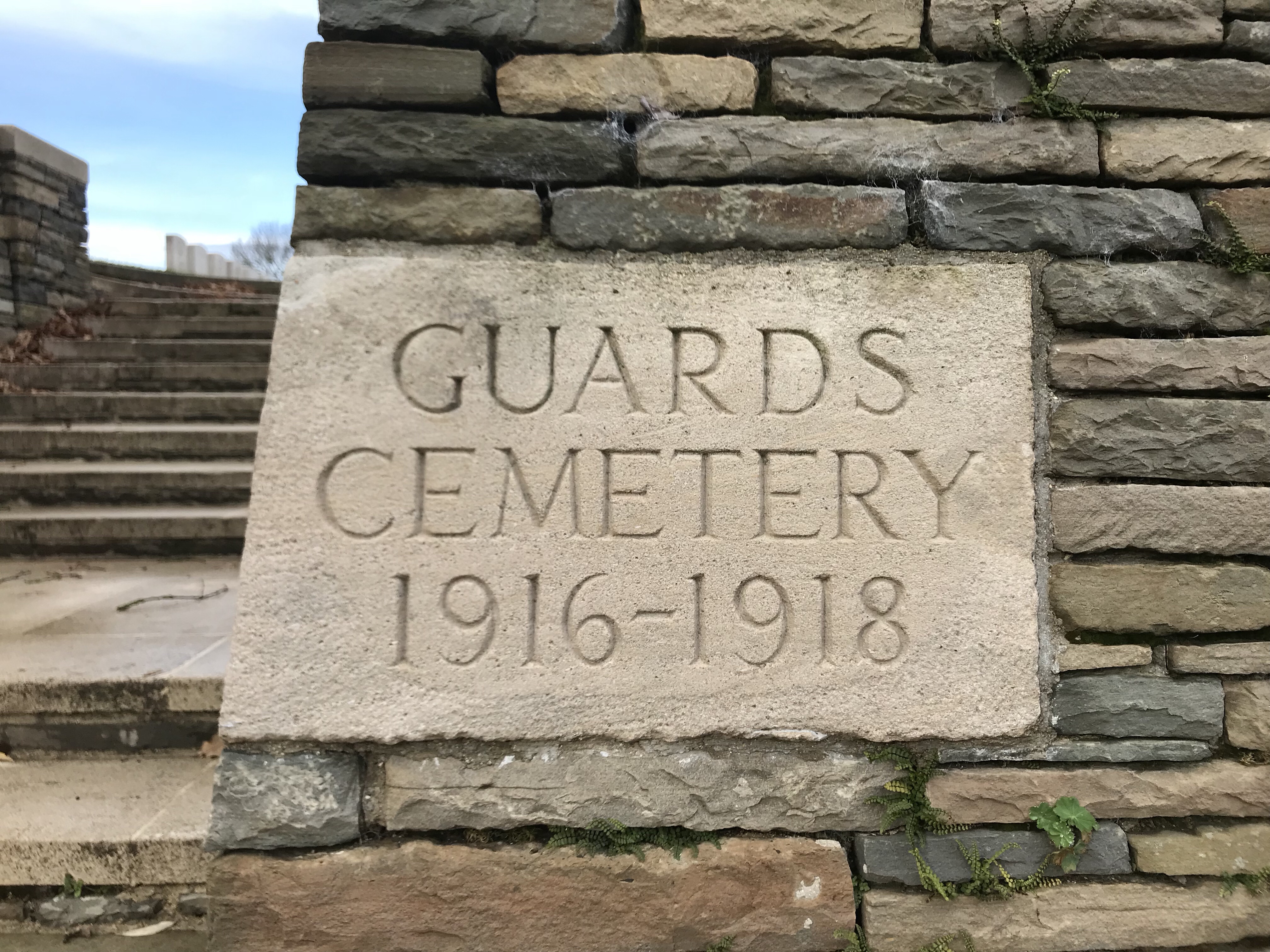
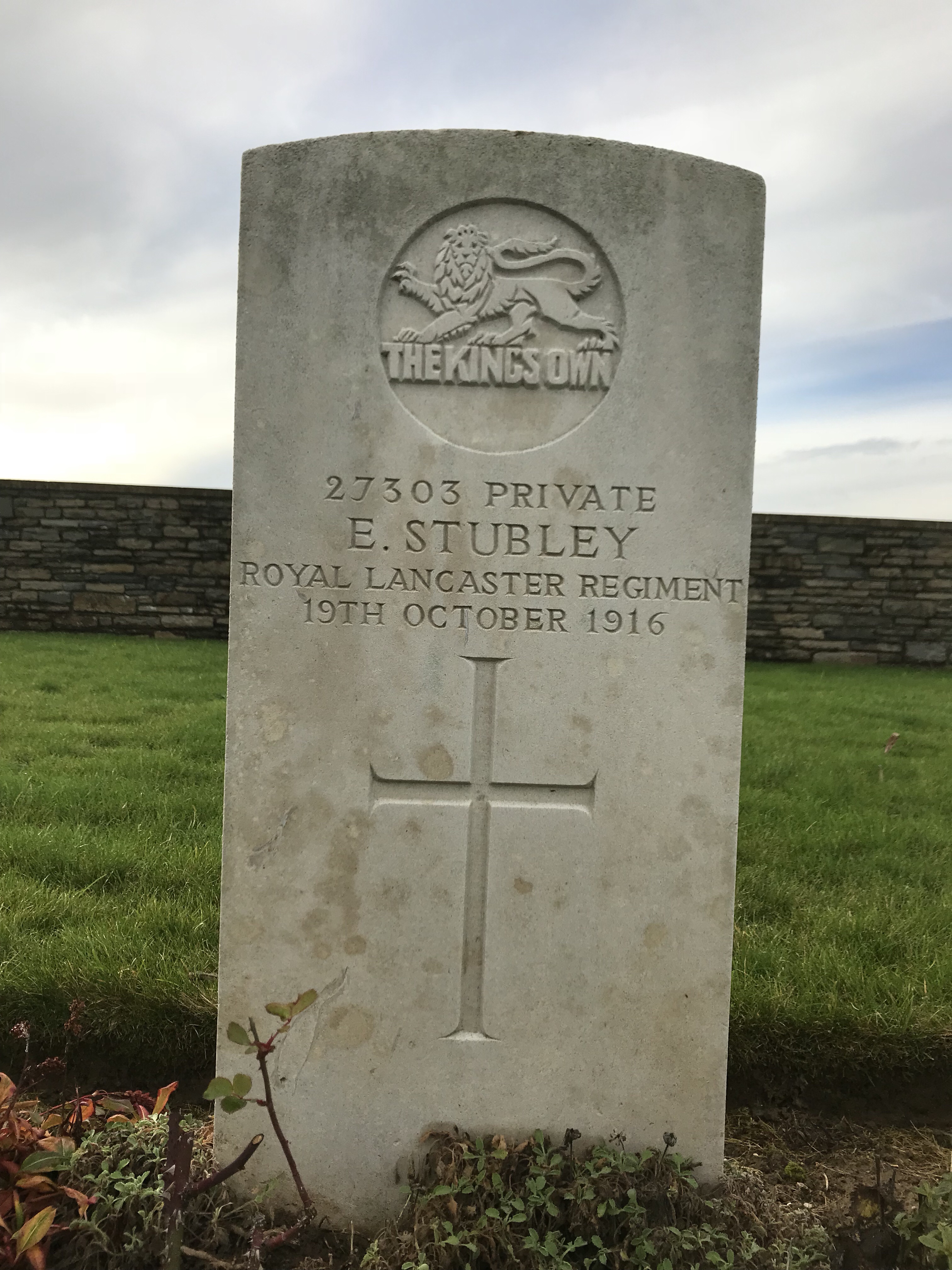
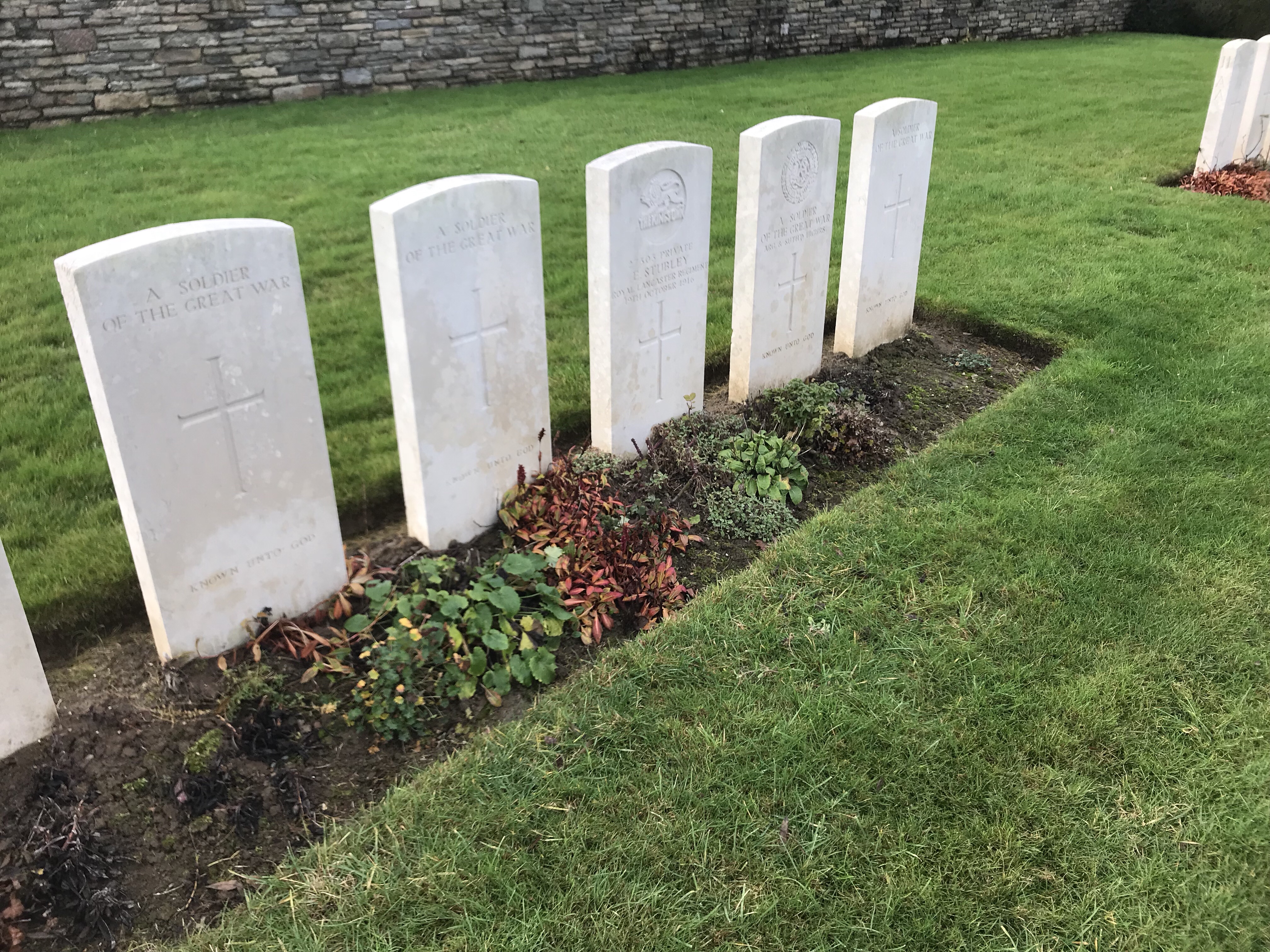
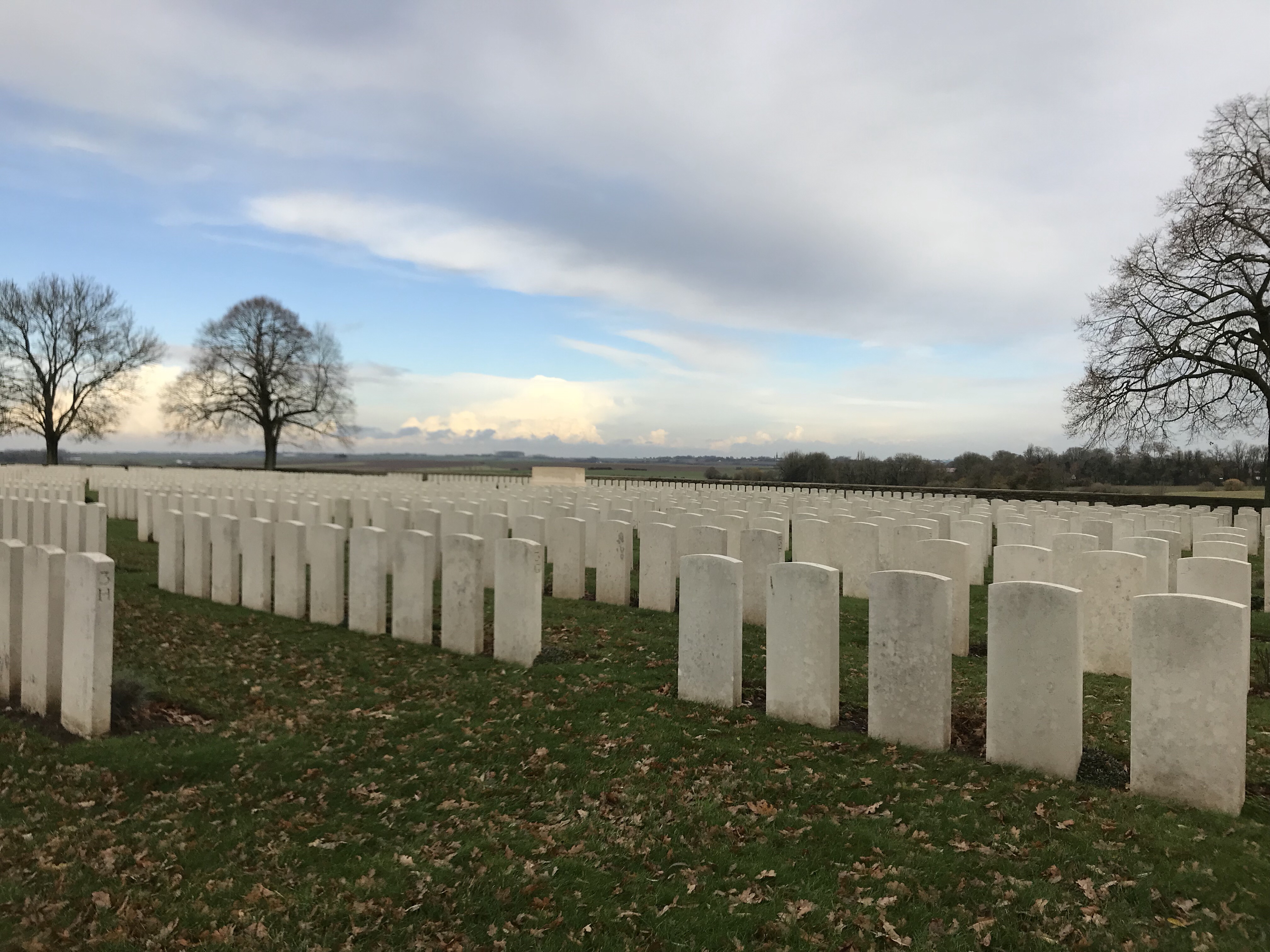

by James | Oct 29, 2017 | Remembrance
Today we commemorate the 100th Anniversary of the death of Thomas Kettle of Bourne and also of the 15th battalion Sherwood foresters.
Thomas was born in 1884 in Bourne to William Kettle and agricultural Labourer born in Little Bytham and his wife Mary Sandall born in Morton. They were married in September 1866 in Bourne and had 11 children, Thomas being the youngest.
John William Kettle, 1867, Bourne
Sarah Ann Kettle, 1869, Bourne
Edward Kettle, 1871, Bourne
Arthur Albert Kettle, 1872, Bourne
Mary Elizabeth Kettle, 1874, Bourne
Richard Partridge Kettle, 1876, Bourne
Edward Kettle, 1876, Bourne
Charles Robert Kettle, 1877, Bourne
Rebecca Kettle, 1879, Bourne
Walter Kettle, 1882, Bourne
Thomas Kettle, 1884, Bourne
William passed away before 1890 leaving Mary with the large family. By 1891 Thomas can be found living with his mother in Bedehouse Bank, Bourne, with 4 of his siblings. Mary was supporting them by working as a washwoman and 15 year old Edward working as a labourer.
Thomas has not been found on the 1901 census and by 1911 he is working as a labourer on a farm at Long Sutton and living with the Taylor family.
Thomas’ war records have not been found and like 60% of all WW1 records they are believed to have been destroyed in the Blitz when the warehouse containing them was bombed.
It is known that Thomas enlisted in Lincoln and was posted to the 15th Battalion Sherwood Foresters (Notts and Derby Regiment). Thomas was not entitled to a 1915 star and so we can assume that he first saw service abroad with the battalion after 1915. The 15th Battalion was a bantam battalion and took men who were 5ft 3inches and under. This normally meant that the men posted to the Battalion were physically very strong and usually came from a labouring or mining background.
As we are not sure when Thomas was posted abroad we can only look at his last month with the regiment with any certainty that he was part of the actions that are described in the Battalion Diaries.
Although the 15th battalion were ordered to Egypt in late 1915, this was cancelled and their first overseas posting was in February 1916 to France where the Battalion fought in the Battle Somme.
We take up the story on the 1st October 1917 in the middle of the 3rd Battle of Ypres also known as the battle of Passchendaele. The Battalion had spent most of the year in the sector near Peronne, previously being in are Arras area.
1st October 1917 – Aizecourt Le Bas
Battalion conveyed to Peronne in Motor Lorries. Transport moving by road.
2nd – 3rd October 1917 – Peronne
Resting and refitting,. Battalion entrained at Peronne at 12 midnight 23rd inst. en route for XVII Corps area and detrained at Arras at 4-30am. 4th inst. proceeding by march route to billets at Warlus. Part of the battalion transport under command of 2nd Lieut R.T Wright. proceeded by road halting on the night of the 3rd inst at Bapaume and continuing march on the 4th inst. arrived at Warlus at 12 noon.
3rd to 12th October – Warlus
Re-organization of Companies and Battalion training.
13th October – Warlus
Battalion (Less “Z” Cmpany.) entrained at Arras Station at 12-54pm and detrained at Cassel at 8-30pm marching to billets at Arneke.
Ltr “Z” Company entrained at Arras at 8-54pm and detrained at Cassel at 3am 14th inst.
15th October – Arneke
Battalion (Less transport) entrained at Arneke at 12 noon and detrained at Proven about 2-30pm marching to D4 camp
16th October – Proven
Entrained to Proven at 12 noon and detrained at Elverdinghe.
Battalion relieved 1st Scots Guards at Rugby Camp. Transport moved by road and occupied camp near Woeston.
17th to 20th October – Elverdinghe
Reconnaisance of line South of Houthulst Forest preparatory to attack.
Furnishing of working parties to assist in preparing forward gun positions.
20th October
At 5pm Battalion moved to Gouvy Farm near Boesinghe
21st October
Battalion moved to assembly positions as supporting Battalion to 105th Brigade in general attack on morning of 22nd inst on enemy positions South of Houthulst Forest.
22nd October
Operations South of Houthulst Forsest
Casualties from 21st to 23rd
Killed – 1 officer, 15 other ranks
Wounded – 1 officer, 160 other ranks
Missing – 1 officer, 20 other ranks
24th October
Relief of Battalion by 19th Durham Light Infantry completed at 3am Companies moved out independantly to billets at Larry Camp near Elverdinghe.
25th to 28th October – Elverdinghe
The Battalion relieved 5th Border Regiment in right sector Divisional Front by 7-30pm
Enemy very quiet whilst relief was taking place. Between 9pm and 11pm enemy put down a strong defensive barrage close behind our forward line, remainder of night was quiet.
30th October
Casualties 1 officer and 4 other ranks killed. 1 officer and 14 other ranks wounded.
At 4am enemy opened heavy artillery fire on the ground immediately behind our front line, developing in intensity at dawn. About 6am several of the enemy were seen running about in Wood East of Marechal House. Several were knowcked out by snipers at Ltr. “X” Company.
Situation quietened down by 8am and remainder of day fairly calm.
31st October
Quiet on the whole. Occasional heavy bursts of artillery fire on Battalion H.Q. and support positions. From 4-30pm onwards the enemy sent over constant streams of gas shells on our back areas.
Thomas Kettle was killed in action on the 29th October and we have to assume killed during the artillery barrage in the late evening on that night.
Commonwealth War Graves Commission:
In memory of Private Thomas Kettle, 50186, 15th Battalion, Sherwood Foresters (Notts and Derby Regiment) who died on 29 October 1917
Remembered with honour, Tyne Cot Memorial.

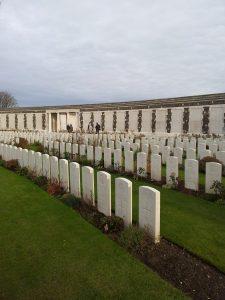
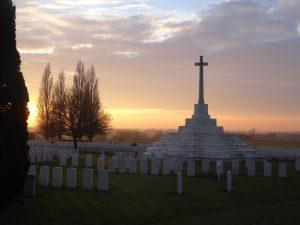
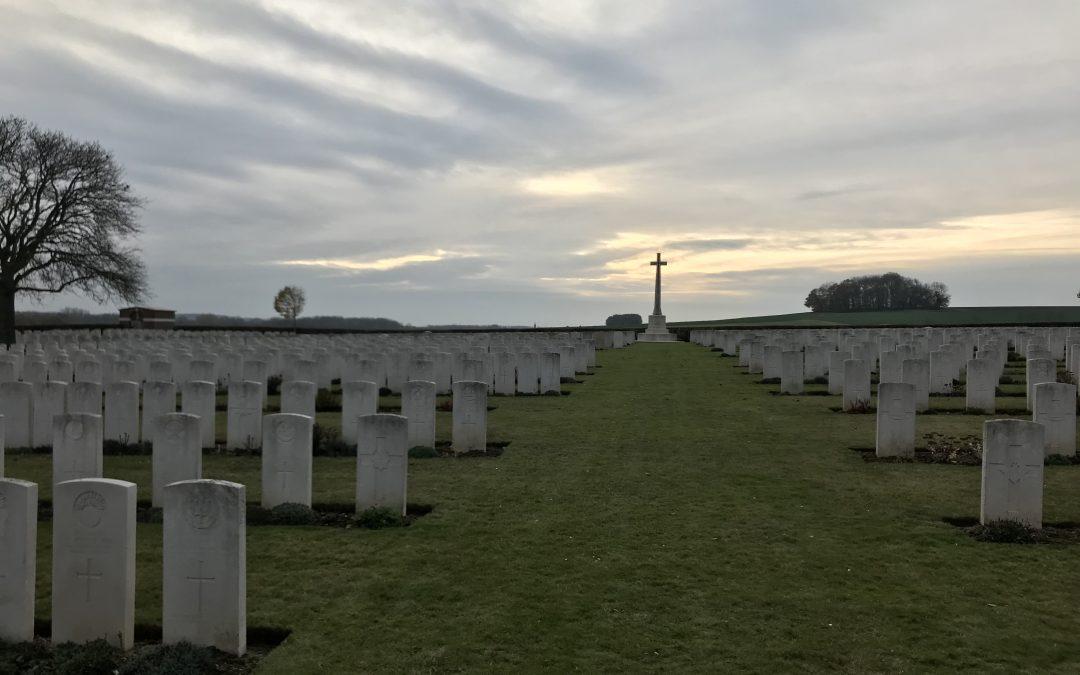
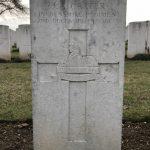
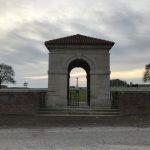
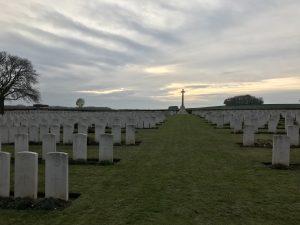











Recent Comments